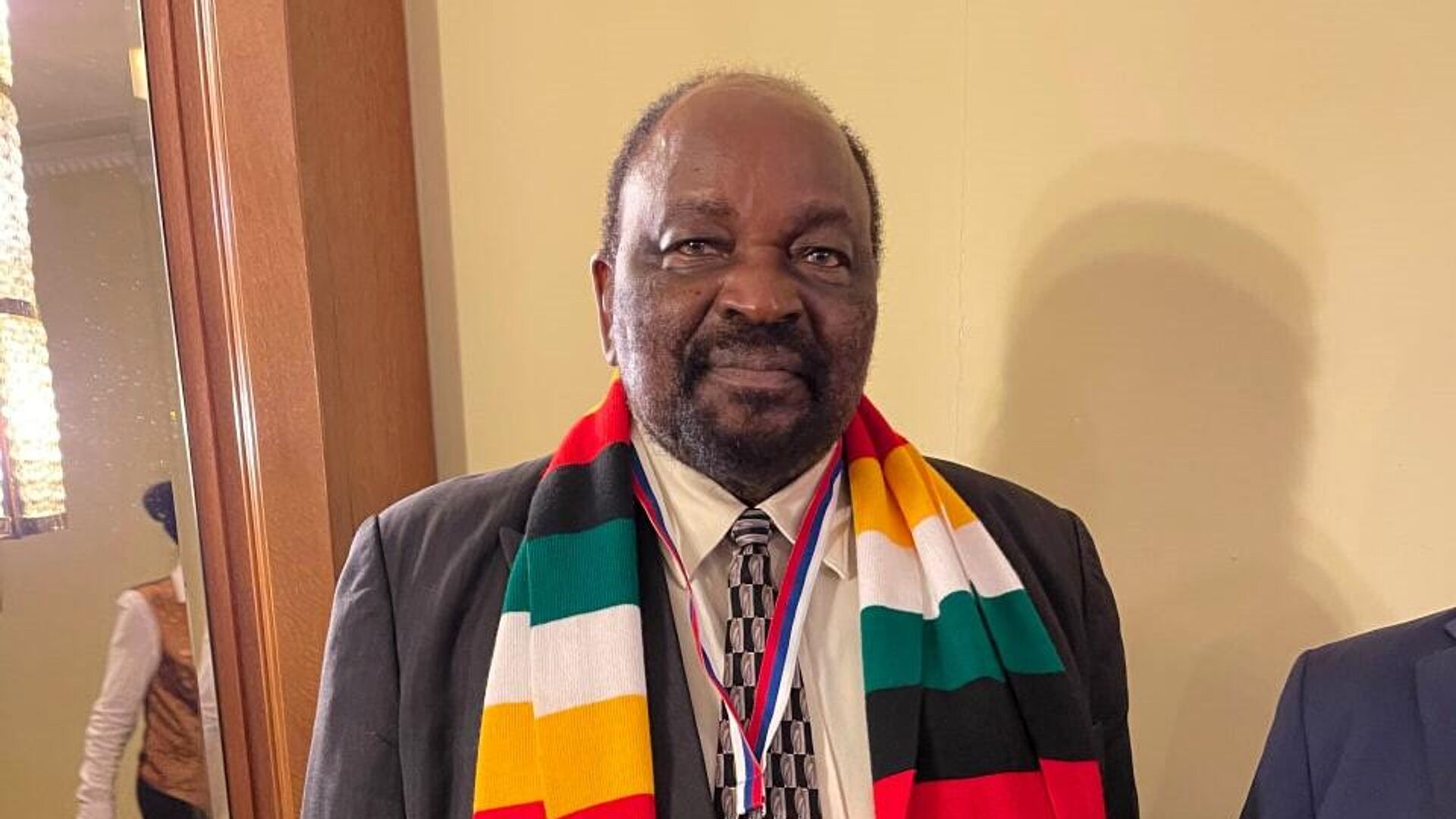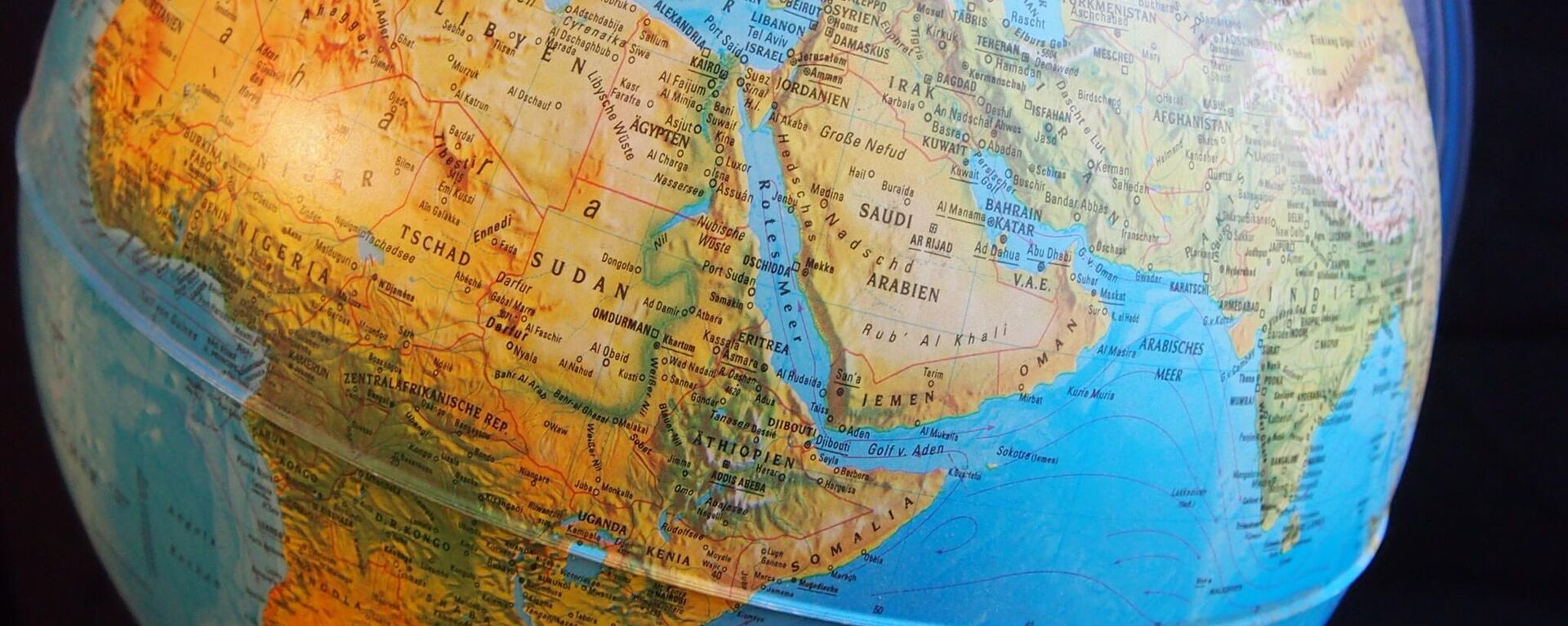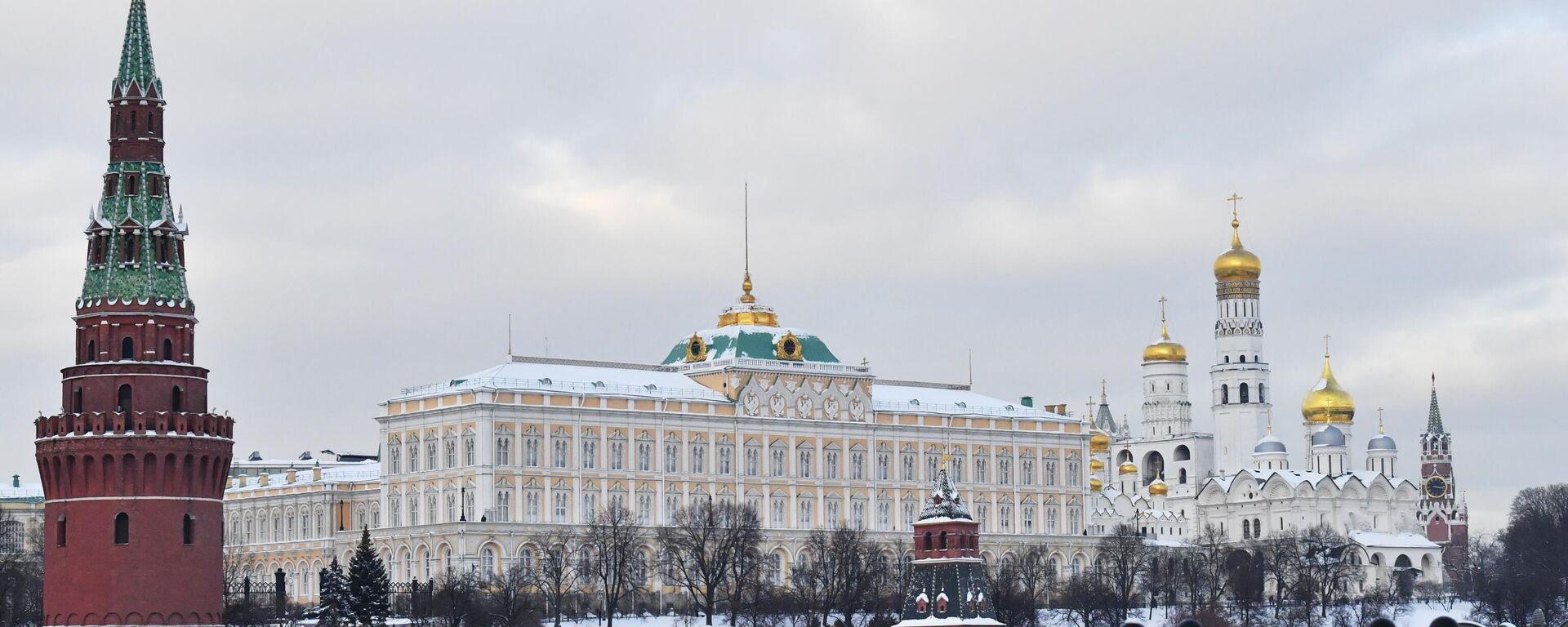https://en.sputniknews.africa/20240215/colonialists-changed-strategies-to-maintain-dominance-over-developing-nations-says-zimbabwes-ex-fm-1065087087.html
Colonialists Changed Strategies to Maintain Dominance Over Developing Nations, Says Zimbabwe's Ex-FM
Colonialists Changed Strategies to Maintain Dominance Over Developing Nations, Says Zimbabwe's Ex-FM
Sputnik Africa
On Thursday, the realm of international relations witnessed a significant gathering in Moscow, as the Forum of Supporters of the Struggle Against Modern... 15.02.2024, Sputnik Africa
2024-02-15T14:47+0100
2024-02-15T14:47+0100
2024-02-15T14:47+0100
moscow
opinion
zimbabwe
soviet union (ussr)
international
colonialism
neocolonialism
the forum of campaigners against modern practices of neocolonialism
russia-africa cooperation
west
https://cdn1.img.sputniknews.africa/img/07e8/02/0f/1065089478_0:65:960:605_1920x0_80_0_0_b69773858d75f699090a1becc6fcaa7a.jpg
Amplifying the discourse around combatting modern forms of colonization is "extremely important," Simbarashe Mumbengegwi, the Secretary for Foreign Relations in the politburo of the ruling ZANU-PF party and former Foreign Minister of Zimbabwe, shared in an interview with Sputnik Africa.Reflecting on the former Soviet Union's historical support for Africa's anti-colonial struggles, Mumbengegwi emphasized the evolution of the former colonial powers' tactics of domination into neo-colonialism and neo-imperialism.The former foreign minister articulated the contemporary challenges posed by subtle mechanisms of control in which former colonial powers exert influence over developing nations, hindering their industrialization while perpetuating dependence on Western economies.He argued that "whereby the colonial powers have retreated physically but continue to dominate and dictate and manipulate the development processes."Highlighting the imbalance in trade dynamics, Mumbengegwi shed light on the fact that the former colonial powers are trying to "create dependency syndromes, where developing countries continue to be dependent on the Western powers."In the context of a shifting geopolitical landscape toward the global South, Mumbengegwi underscored the pivotal role of platforms like the BRICS alliance in challenging Western hegemony and fostering collaborative efforts among developing nations.By pooling resources and expertise, these alliances offer a viable path to economic empowerment and resilience against neo-colonial encroachment, according to the former head of Zimbabwe's diplomacy.The ZANU-PF representative also welcomed the ongoing BRICS initiatives to reduce the dependence of the world, and African countries in particular, on the US dollar through the use of national currencies in mutual trade. He also noted that the bloc, which unites a number of the world's fastest growing economies, to create an alternative "BRICS currency".The anti-neocolonialist forum in Moscow has garnered significant interest from prominent African and Russian political figures, including the President of the Central African Republic, who is currently on a three-day visit to Russia. Delegations from 50 countries, including South Africa, China and North Korea, are expected to arrive in Moscow to participate in the three-day event.
https://en.sputniknews.africa/20240214/russia-ready-to-help-african-countries-with-stocktaking-of-items-stolen-by-colonialists-1065077559.html
https://en.sputniknews.africa/20240214/us-obstructs-work-of-international-forum-against-neo-colonialism-russias-senator-says-1065073571.html
moscow
zimbabwe
soviet union (ussr)
west
russia
Sputnik Africa
feedback@sputniknews.com
+74956456601
MIA „Rossiya Segodnya“
2024
Muhammad Nooh Osman
https://cdn1.img.sputniknews.africa/img/07e7/04/0a/1058467512_0:0:1280:1280_100x100_80_0_0_ec723833bcbfcaed2e21952965ad99e4.jpg
Muhammad Nooh Osman
https://cdn1.img.sputniknews.africa/img/07e7/04/0a/1058467512_0:0:1280:1280_100x100_80_0_0_ec723833bcbfcaed2e21952965ad99e4.jpg
News
en_EN
Sputnik Africa
feedback@sputniknews.com
+74956456601
MIA „Rossiya Segodnya“
Sputnik Africa
feedback@sputniknews.com
+74956456601
MIA „Rossiya Segodnya“
Muhammad Nooh Osman
https://cdn1.img.sputniknews.africa/img/07e7/04/0a/1058467512_0:0:1280:1280_100x100_80_0_0_ec723833bcbfcaed2e21952965ad99e4.jpg
moscow, zimbabwe, soviet union (ussr), international, colonialism, neocolonialism, the forum of campaigners against modern practices of neocolonialism, russia-africa cooperation, west, russia, brics expansion, brics
moscow, zimbabwe, soviet union (ussr), international, colonialism, neocolonialism, the forum of campaigners against modern practices of neocolonialism, russia-africa cooperation, west, russia, brics expansion, brics
Colonialists Changed Strategies to Maintain Dominance Over Developing Nations, Says Zimbabwe's Ex-FM
Muhammad Nooh Osman
Writer/Editor
On Thursday, the realm of international relations witnessed a significant gathering in Moscow, as the Forum of Supporters of the Struggle Against Modern Practices of Neocolonialism began under the theme "For the Freedom of Nations". Notable figures from around the world, including Africa, gathered to discuss the pressing issue of neocolonialism.
Amplifying the discourse around combatting modern forms of colonization is "extremely important," Simbarashe Mumbengegwi, the Secretary for Foreign Relations in the politburo of the ruling ZANU-PF party and former Foreign Minister of Zimbabwe, shared in an interview with Sputnik Africa.
Reflecting on the former Soviet Union's historical support for Africa's
anti-colonial struggles, Mumbengegwi emphasized the evolution of the former colonial powers' tactics of domination into neo-colonialism and neo-imperialism.
"Now it is very, very encouraging to be here in Moscow today, as the follow up of the struggle against colonialism and imperialism. Because, the colonialist and imperialist have now changed their strategies by adopting much more subtle ways of domination through neo-colonialism and neo-imperialism," Mumbengegwi told Sputnik Africa on the sidelines of the Forum of Supporters of the Struggle Against Modern Practices of Neo-colonialism that kidded off in Moscow on Thursday.
The former foreign minister articulated the contemporary challenges posed by subtle mechanisms of control in which former colonial powers exert influence over developing nations, hindering their industrialization while perpetuating dependence on Western economies.
He argued that "whereby the colonial powers have retreated physically but continue to dominate and dictate and manipulate the development processes."
"The neo-colonial powers continue to want to dominate the economies of the developing countries to make sure that developing countries do not industrialize, so that they continue to be producers of raw materials, which are then exported to the imperialist countries, who then process them into finished goods, which come back to the developing countries as finished products at a very, very high price," Mumbengegwi explained.
Highlighting the imbalance in trade dynamics, Mumbengegwi shed light on the fact that the former colonial powers are trying to "create dependency syndromes, where developing countries
continue to be dependent on the Western powers."
In the context of a shifting geopolitical landscape toward the global South, Mumbengegwi underscored the pivotal role of platforms like the BRICS alliance in challenging Western hegemony and fostering collaborative efforts among developing nations.
By pooling resources and expertise, these alliances offer a viable path to economic empowerment and resilience against neo-colonial encroachment, according to the former head of Zimbabwe's diplomacy.
"We are confident that this will provide a very, very viable platform at which developing countries can be able to mutually assist to one another in terms of value addition of their resources, rather than simply sending them away in their raw form at very, very low prices," Mumbengegwi said.
The ZANU-PF representative also welcomed the ongoing
BRICS initiatives to reduce the dependence of the world, and African countries in particular, on the US dollar through the use of national currencies in mutual trade. He also noted that the bloc, which unites a number of the world's fastest growing economies, to create an alternative "BRICS currency".
"That will, definitely, considerably weaken the strength of the United States dollar, which currently dominates economic transaction and thereby enables the Americans and their allies to manipulate situations in the global market […] The trading field will be leveled up will be to benefit each and every one of us according to the resources that we have at our disposal," Mumbengegwi concluded.
The anti-neocolonialist forum in Moscow has garnered significant interest from prominent African and Russian political figures, including the President of the Central African Republic, who is currently on a three-day
visit to Russia. Delegations from 50 countries, including South Africa, China and North Korea, are expected to arrive in Moscow to participate in the three-day event.




